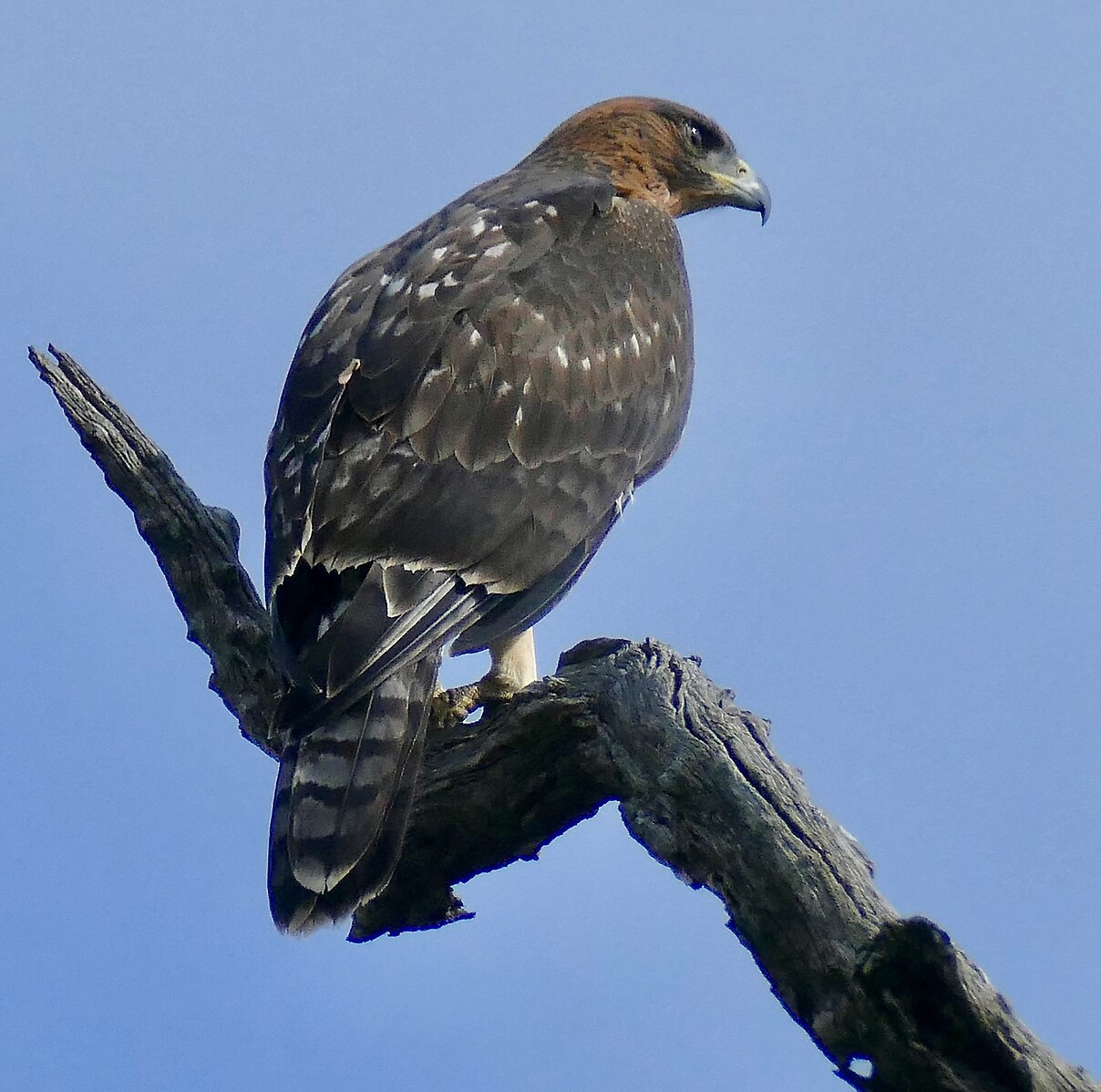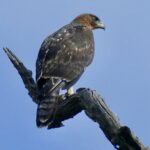African hawk eagles are highly monogamous birds of prey, and it is quite typical for adults to pair for life. However, there have been reports of potential polygyny in some populations, such as in Ethiopia. These majestic raptors are known for their territorial behavior and will fiercely defend their nests and territories from potential threats, including humans.
Breeding Behavior and Nesting Habits
The breeding process for African hawk eagles is an extensive one, taking approximately 500 days from the start of courtship to the young becoming fully independent. The breeding season varies geographically, with populations in the north of the Equator breeding from October to April, while those in The Gambia breed from February to June. In East Africa, the nesting season is often into April-January, and in Uganda, egg laying has been recorded from September to November with a juvenile bird seen by January. In southern Africa, the nesting season is somewhat variable, recorded from April to October, with egg-laying peaking in June according to one authority.
Nests are typically placed in flat-crowned thorn trees in areas with basaltic soils and round-crowned, rough-barked trees in areas with sandy soil. Rainfall plays a significant role in breeding success, laying dates, and clutch sizes, with higher success, later laying dates, and larger clutch sizes correlating with higher rainfall.
Territorial Behavior and Dispersal
 Image source: African Hawk-Eagle by Bernard DUPONT
Image source: African Hawk-Eagle by Bernard DUPONT
African hawk-eagles are generally sedentary and stable breeding raptors, rarely leaving their devoted territories that provide good prey numbers and suitable habitat. However, there have been instances of pairs using multiple nesting sites over the years, which is considered atypical behavior for the species.
Regarding dispersal, juvenile African hawk-eagles can travel considerable distances from their breeding grounds. The mean dispersal distance for individuals in southern Africa is 25 km (16 mi) from their ringing as nestlings to recovery. Interestingly, one ringed hawk-eagle was found to have moved a distance of 795 km (494 mi) from Limpopo in South Africa to Victoria Falls on the Zambia-Zimbabwe border, possibly in response to a prolonged dry spell and diminishing food resources.
Potential Polygyny and Mating Strategies
While African hawk eagles are predominantly monogamous, there have been reports of potential polygyny in some populations, particularly in Ethiopia. This means that a single male may mate with and maintain multiple female partners simultaneously. However, this behavior is not well-documented and may be an exception rather than the norm for the species.
In terms of mating strategies, African hawk eagles engage in elaborate courtship displays, including aerial acrobatics, vocalizations, and nest-building activities. These behaviors are believed to play a crucial role in pair-bond formation and maintenance, as well as in the defense of their territories.
Conservation Status and Threats
The African hawk eagle is classified as Least Concern on the IUCN Red List, indicating that the species is not currently facing a high risk of extinction. However, like many raptor species, they face various threats, including habitat loss, persecution, and the use of pesticides and other contaminants.
Habitat degradation and fragmentation can disrupt the availability of suitable nesting sites and prey resources, which can negatively impact the species’ breeding success and population dynamics. Additionally, the use of poisoned baits and other forms of persecution by humans can directly threaten the survival of individual birds and local populations.
Conclusion
In conclusion, the African hawk eagle is a highly monogamous raptor species, with adults typically pairing for life. While there have been reports of potential polygyny in some populations, this behavior is not well-documented and may be an exception rather than the norm. These majestic birds are known for their territorial behavior, prolonged breeding process, and the ability of their juveniles to disperse considerable distances from their natal territories. Understanding the mating and breeding habits of the African hawk eagle is crucial for the effective conservation and management of this species in its natural habitats.
References:
– https://en.wikipedia.org/wiki/African_hawk-eagle
– https://birding.krugerpark.co.za/birding-in-kruger-raptor-eagles.html
– https://animalia.bio/african-hawk-eagle/1000


